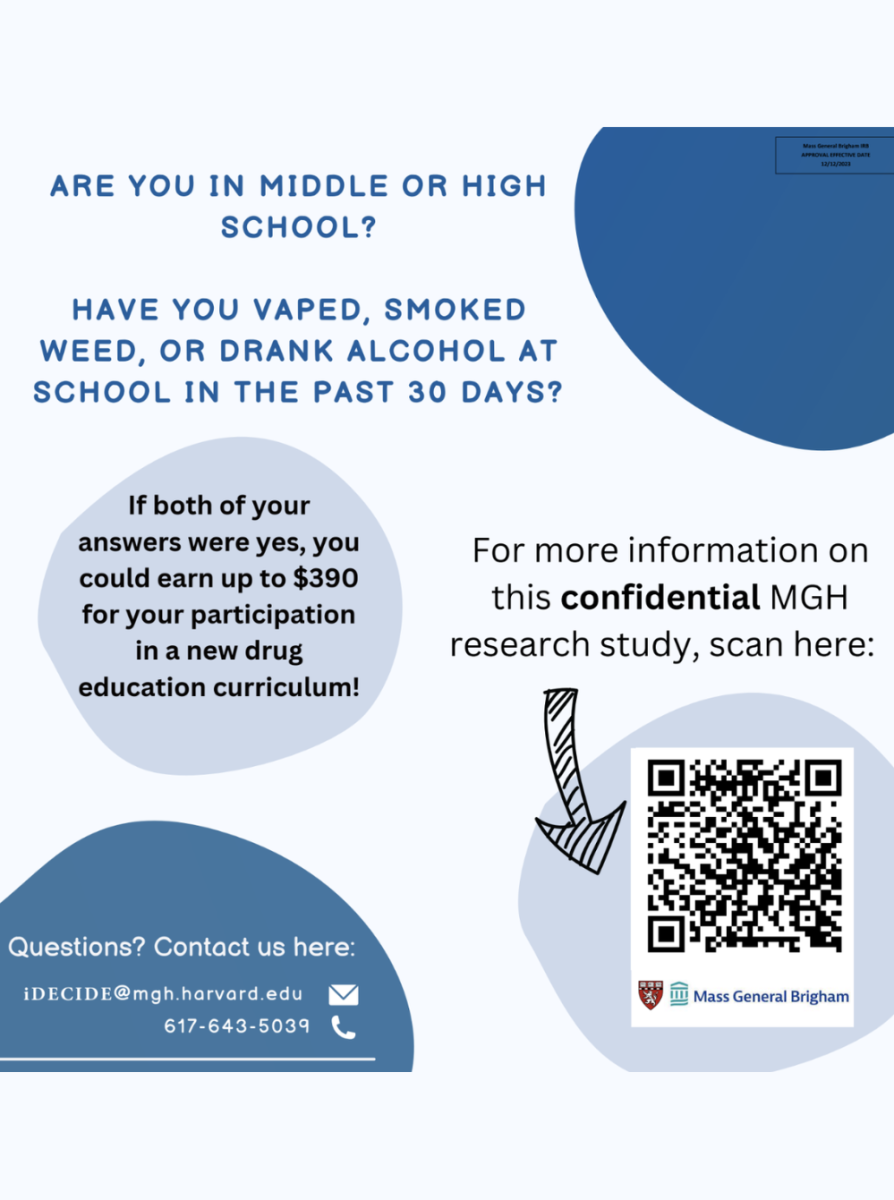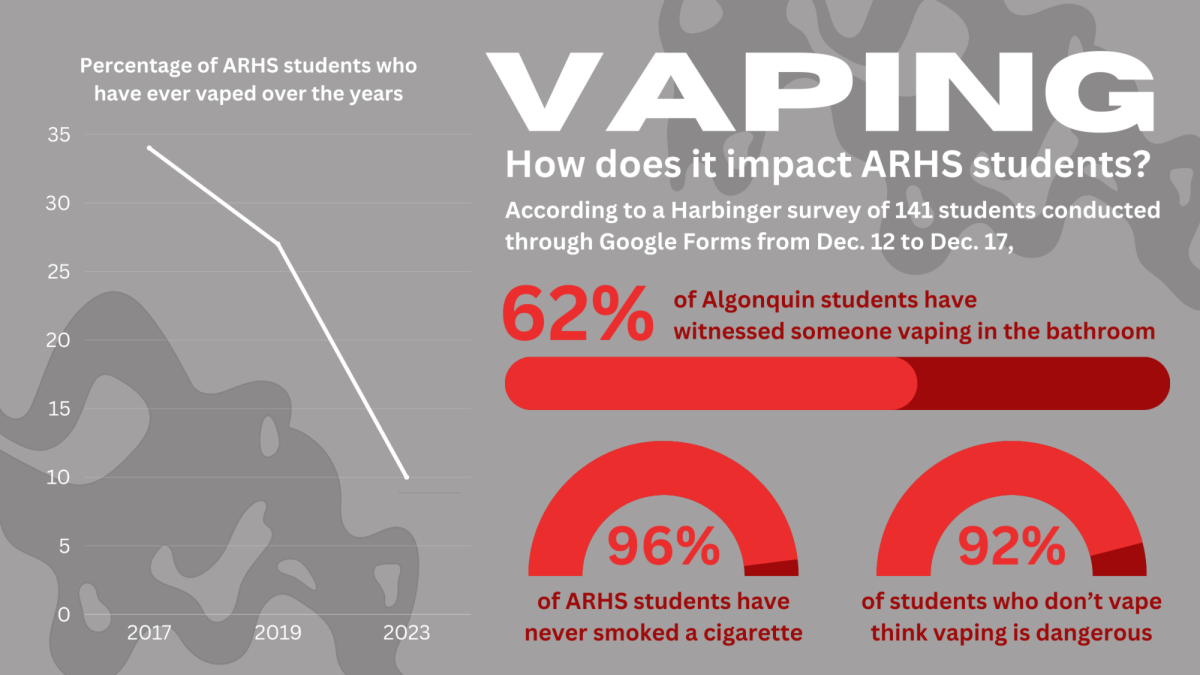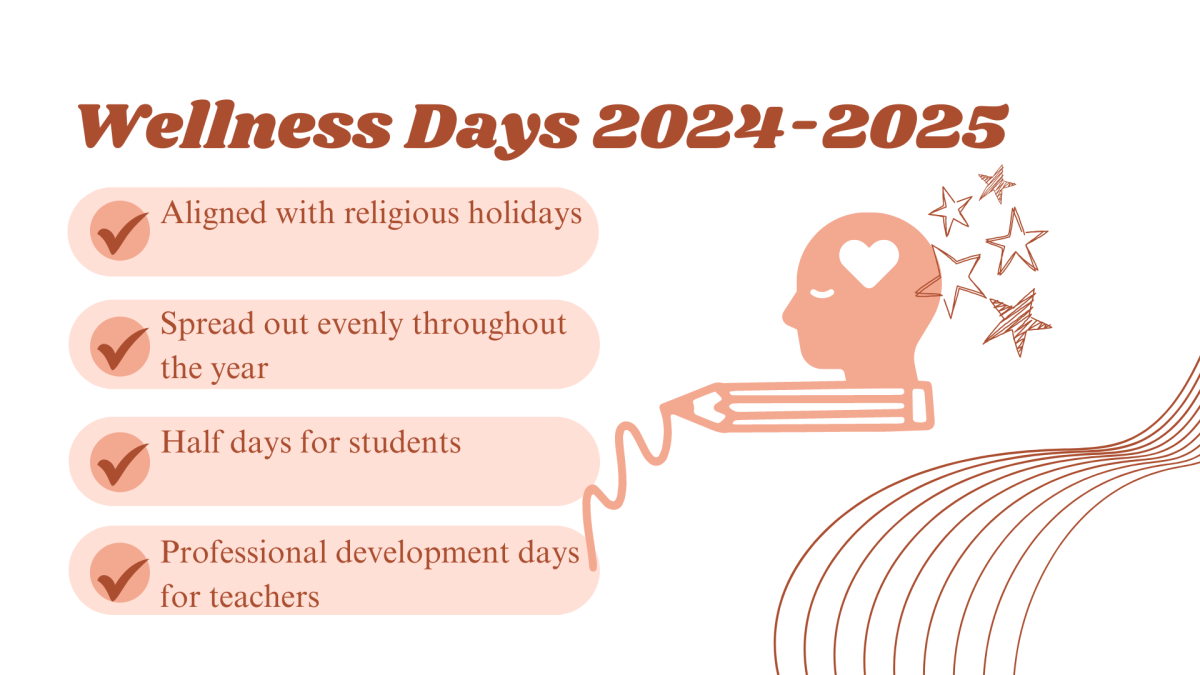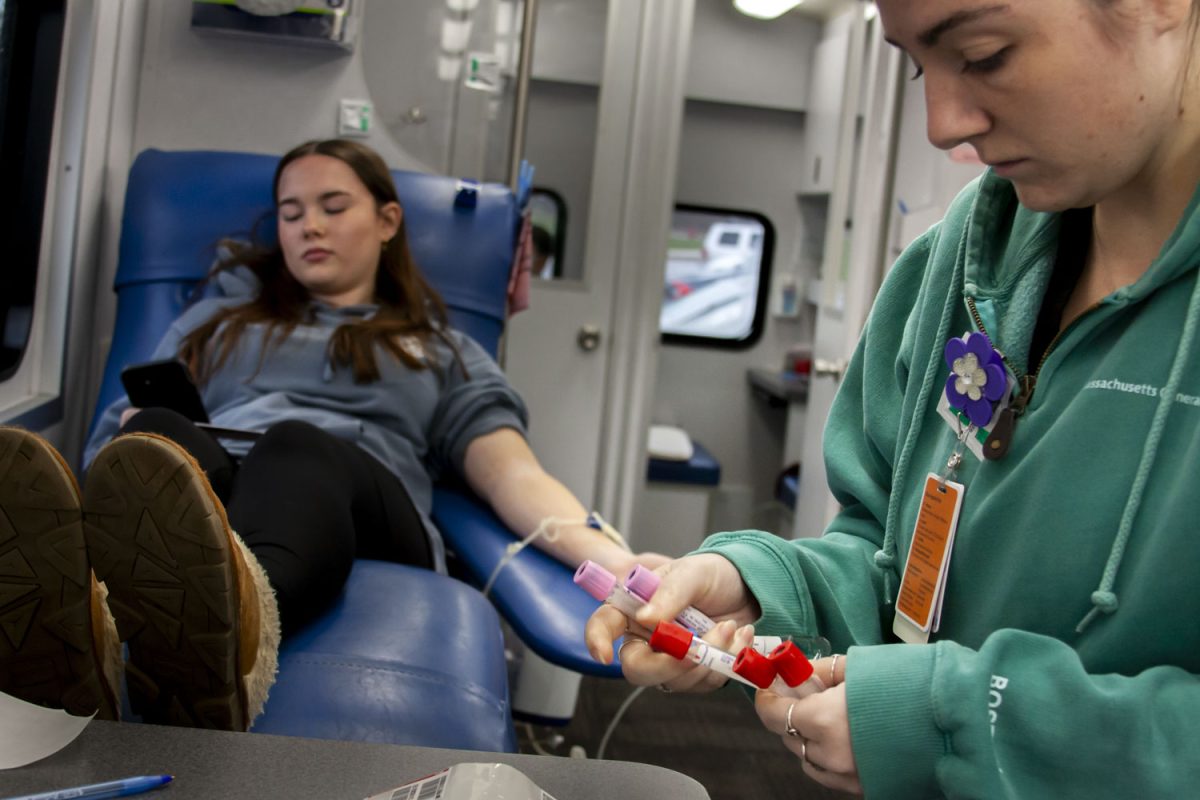While the number of Algonquin students who vape has dropped in recent years and some students perceive vaping as a downward trend, administration continues to integrate programs to help those who have fallen into the vaping cycle.
According to a Harbinger survey of 141 students conducted through Google Forms from Dec. 12 to Dec. 17, only 10% of respondents say they have ever vaped. This is a significant drop from past Harbinger surveys that found 27% of students had vaped in 2019 and 34% of students had vaped in 2017.
Despite these declines, the administration continues to develop strategies to support students, including iDecide, which stands for Drug Education Curriculum: Intervention, Diversion and Empowerment. The program is an evidence-based intervention for students as opposed to suspension. In this program students develop skills that apply specifically to themselves in ways to help their own personal struggles with vaping.
“The iDecide program is a collaboration between the Massachusetts Department of Public Health Bureau on Substance Addiction Services, the Office of Youth and Adult Services, [Massachusetts] General Hospital and the Institute of Health and Recovery,” Assistant Principal Janet Brown said. “It’s a research program that is happening through [Massachusetts] General [Hospital] and Harvard Medical School along with outside agencies.”
It seems that without the research or information [vaping] might seem more safe or healthy, which is very far from the truth. There are way higher amounts of nicotine and other chemicals in vapes compared to cigarettes,
— Nurse Erika Almquist
The program, which was introduced at Algonquin last school year, is still relatively new, but as Brown described, “We’re a little bit further along than being in the infancy of the program.”
Brown, along with nurse Erika Almquist and head of the Guidance department Lisa Connery, were the first faculty members to be trained as program facilitators, with Almquist taking the lead in carrying out the iDecide program at ARHS.
“It was nurse Almquist who was really first interested in the iDecide program and really wanted to bring it to the attention to the administration and guidance staff as a possibility of something to work with,” Brown said.
The program helps students not only see the dangers of vaping, but also helps them identify ways to move away from vaping.
“There’s first this educational component, and then students assess their own risk for substance use and their own [reasons not to vape] for substance use,” Brown said. “We then talk in the program about healthy alternatives.”
In addition to seemingly lower vaping rates, 96% of the Harbinger survey respondents said they’ve never smoked cigarettes before.
“Related to the students, I’ve seen a big increase in vaping both nicotine and marijuana and decrease in cigarette smoking,” Almquist said. “It seems that without the research or information [vaping] might seem more safe or healthy, which is very far from the truth. There are way higher amounts of nicotine and other chemicals in vapes compared to cigarettes.”
According to the survey, 92% of respondents that don’t vape regularly believe vaping is dangerous and 93% of respondents that don’t smoke regularly believe smoking is dangerous.
Many students understand the potentially dangerous long-term effects of vaping, but some still vape, enjoying it in the moment and believing they could stop any time.
While some students who enjoy vaping believe it’s not addictive and that there are minimal health effects, many students understand the potentially dangerous long-term effects of vaping.
“I know there’s popcorn lung,” senior Natalie McNeil said. “The long-term health effects are more important than the short-term positive [feeling you might get from vaping].”
We want students to be able to use the restrooms free of chemicals and we also want students to feel safe in the restroom,
— Assistant Principal Janet Brown
According to Almquist, while many understand possible long-term damages, the amount of nicotine in vapes makes it easy to get addicted even after minimal use.
“One [short term effect of vaping] is actually addiction; it’s so high in nicotine that even after a few times of use it’s hard to stop,” Almquist said.
Almquist also says misinformation leads to a lack of understanding in ways to handle stress and anxiety in some students.
“A lot of people use vaping as a substitute for other ways to manage anxiety and stress; people potentially vape nicotine as opposed to deep breathing or a relaxation technique if they’re feeling anxious,” Almquist said. “I think it’s just having this non-healthy habit with dealing with stress and anxiety.”
Although most students claim they do not vape, 62% of survey respondents have witnessed someone vaping in an ARHS restroom, and 46% of students have avoided a restroom due to vaping.
“We want students to be able to use the restrooms free of chemicals and we also want students to feel safe in the restroom,” Brown said.
According to Almquist, there’s no one set way to quit.
“I think as far as quitting it’s very individual,” Almquist said. “For some people picking a [quitting] date and sticking to it is something they can do. There’s also different programs out there. The Department of Public Health that does the iDecide program has a nicotine cessation program; it’s a study they’re trying a specific medication to help students and young teens.”


















